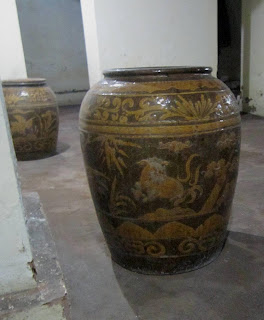Travel notes for the interested traveler on places to see in Kolkata and its neighbourhood, out-of-the-way places and experiences elsewhere in India, glimpses of wildlife, folk art, tribal life and culture in India
About Me

- tollysnomad
- With more than 50 years of travelling about in India, one can share a good deal of information and experience about out-of-the-way places and roads less travelled. That can make visits all the more exciting and enjoyable.
Monday, 13 December 2021
Re-visiting Synagogues in Kolkata - and an interesting find
Several families of Sephardim Jews from Iraq came to the city of Calcutta shortly after the advent of the British in 1757. Soon thereafter synagogues came up for both for their weekly prayers, periodic religious functions such as the "Pass-over" and social events like solemnizing marriages.
It was interesting recently to re-visit the Jewish synagogues still to be seen in Calcutta they were first visited - more than once - in 1985-86 when preparing for the book "10 Walks in Calcutta".
The above shows the cover of the Bengali edition of the book titled as "Paye Paye Kolkata" published in 2018 by Ananda Publishers.
The first synagoue to be revisited was the Beth-el Synagogue that had been built in 1856. This community of Jews provided an important link between the Jews in UK and Europe with those in the Middle East, e.g. Iraq and Sysria and Palestine and those farther east in South East Asia, upto Hong Kong.
This picture shows the interior of the Beth-el Synagogue.
What was quite interesting was the wine cellar below the synagogue where wine that was used for certain ceremonies and made in the proper Jewish tradition had been prepared. Some of the jars for holding this ceremonial wine were evidently (as seen from the motifs on the jar) imported from China, which was known for long for its fine ceramics.
Following the visits to the Synagoues, there was time to visit a nearby Christian church and it was interesting to see this gravestone dedicated to one Sarkis de Agvally, who was from Armenia and Persia and had passed away in February 1736. It was evident that the Armenian community was among first of those from Europe who had settled down in Calcutta for trade and commerce.
The picture of the gravestone is as above.
Subscribe to:
Post Comments (Atom)




No comments:
Post a Comment